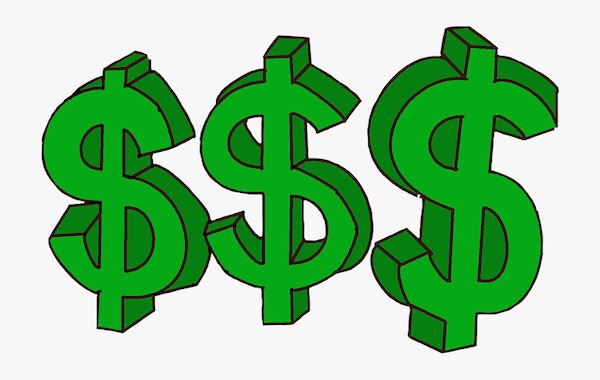By Geoff Russ
The Port of Churchill has long been viewed as Canada’s northern gateway to global markets, but decades of under-investment have held it back.
A national dream that never materialised
For nearly a century, Churchill, Manitoba has loomed in the national imagination. In 1931, crowds on the rocky shore watched the first steamships pull into Canada’s new deepwater Arctic port, hailed as the “thriving seaport of the Prairies” that would bring western grain “1,000 miles nearer” to European markets. The dream was that this Hudson Bay town would become a great Canadian centre of trade and commerce.
The Hudson Bay Railway was blasted across muskeg and permafrost to reach what engineers called an “incomparably superior” harbour. But a short ice free season and high costs meant Churchill never grew beyond a niche outlet beside Canada’s larger ports, and the town’s population shrank.
False starts, failed investments
In 1997, Denver based OmniTrax bought the port and 900 kilometre rail line with federal backing and promises of heavy investment. Former employees and federal records later suggested those promises were not fully kept, even as Ottawa poured money into the route and subsidies were offered to keep grain moving north. After port fees jumped and the Canadian Wheat Board disappeared, grain volumes collapsed and the port shut, cutting rail service and leaving northern communities and miners scrambling.
A new Indigenous-led revival — with limits
The current revival looks different. The port and railway are now owned by Arctic Gateway Group, a partnership of First Nations and northern municipalities that stepped in after washouts closed the line and OmniTrax walked away. Manitoba and Ottawa have committed $262.5 million over five years to stabilize the railway and upgrade the terminal, with Manitoba’s share now at $87.5 million after a new $51 million provincial pledge.
Prime Minister Mark Carney has folded Churchill into his wider push on “nation building” infrastructure. His government’s new Major Projects Office is advancing energy, mining and transmission proposals that Ottawa says add up to more than $116 billion in investment. Against that backdrop, Churchill’s slice looks modest, a necessary repair rather than a defining project.
The paperwork drives home the point. The first waves of formally fast tracked projects include LNG expansion at Kitimat, new nuclear at Darlington and copper and nickel mines. Churchill sits instead on the office’s list of “transformative strategies”, a roster of big ideas still awaiting detailed plans and costings, with a formal Port of Churchill Plus strategy not expected until the spring of 2026 under federal–provincial timelines.
Churchill as priority — or afterthought?
Premier Wab Kinew rejects the notion that Churchill is an afterthought. Standing with Carney in Winnipeg, he called the northern expansion “a major priority” for Manitoba and cast the project as a way for the province “to be able to play a role in building up Canada’s economy for the next stage of us pushing back against” U.S. protectionism. He has also cautioned that “when we’re thinking about a major piece of infrastructure, realistically, a five to 10 year timeline is probably realistic.”
On paper, the Port of Churchill Plus concept is sweeping. The project description calls for an upgraded railway, an all weather road, new icebreaking capacity in Hudson Bay and a northern “energy corridor” that could one day move liquefied natural gas, crude oil, electricity or hydrogen. Ottawa’s joint statement with Manitoba calls Churchill “without question, a core component to the prosperity of the country.”
Concepts without commitments
The vision is sweeping, yet most of this remains conceptual. Analysts note that hard questions about routing, engineering, environmental impacts and commercial demand still have to be answered. Transportation experts say they struggle to see a purely commercial case that would make Churchill more attractive than larger ports, arguing its real value is as an insurance policy for sovereignty and supply chain resilience.
That insurance argument is compelling in an era of geopolitical risk and heightened concern about Arctic security. It is also a reminder of how limited Canada’s ambition at Churchill has been. For a hundred years, governments have been willing to dream big in northern Manitoba, then content to underbuild and underdeliver, as the port’s own history of near misses shows. A port that should be a symbol of confidence in the North has spent most of its life as a seasonal outlet.
A Canadian pattern — high ambition, slow execution
The pattern is familiar across the country. Despite abundant resources, capital and engineering talent, mines, pipelines, ports and power lines take years longer to approve and build here than in competing jurisdictions. A tangle of overlapping regulations, court challenges and political caution has turned review into a slow moving veto, leaving a politics of grand announcements followed by small, incremental steps.
Churchill is where those national habits are most exposed. The latest round of investment, led by Indigenous owners and backed by both levels of government, deserves support, as does Kinew’s insistence that Churchill is a priority. But until Canada matches its Arctic trading rhetoric with a willingness to build at scale and at speed, the port will remain a powerful dream that never quite becomes a real gateway to the world.
Headline photo credit to THE CANADIAN PRESS/John Woods






















